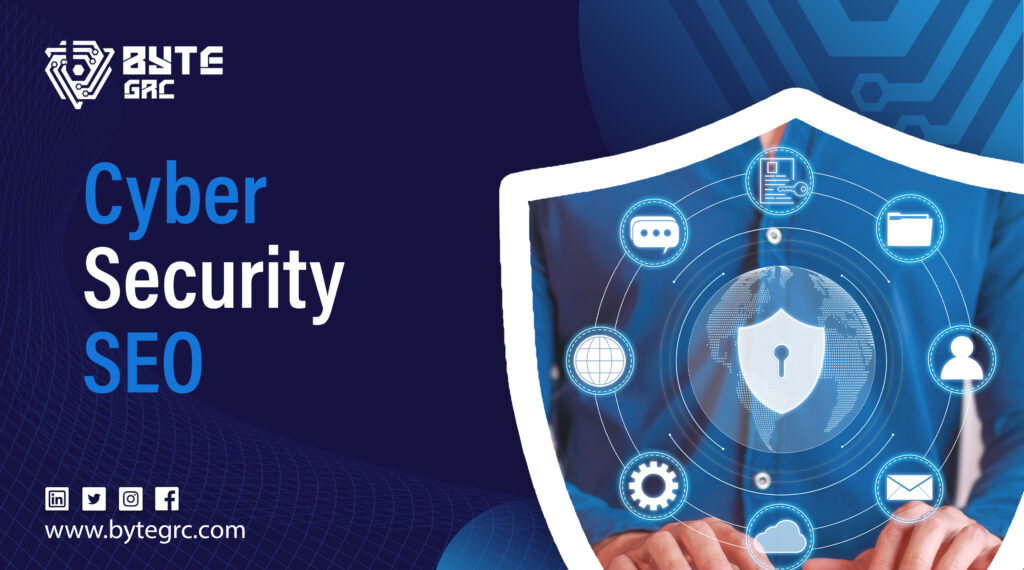
Table of Contents
How to Dominate Cyber Security SEO: A Step-by-Step Guide
In the digital world, being seen online is everything, especially in the cybersecurity industry. You could offer the most advanced tools and services, but if your company doesn’t show up on Google, your potential customers may never find you.
Now here’s the twist: Cyber security SEO isn’t your average search engine strategy. The space is competitive, packed with heavy tech language, and changing all the time. That makes it tough for even the most skilled companies to rank high.
In this guide, you’ll learn exactly how to boost your search rankings, get more traffic, and attract qualified leads—all with simple, step-by-step strategies. Whether you’re a growing startup or a seasoned firm, this guide will show you how to win the SEO game in cybersecurity.
Understanding Cyber Security SEO Fundamentals
Let’s understand cybersecurity SEO fundamentals. Firstly, understand what makes it different:
What Makes Cyber Security SEO Different?
Cybersecurity SEO isn’t like marketing shoes or kitchen appliances. You’re working with high-intent, low-volume keywords. That means people aren’t searching all day long, but when they do, they’re serious. These are the folks looking for answers—or solutions—to complex security problems.
Also, cybersecurity companies often fall into either B2B (business-to-business) or B2C (business-to-consumer). Each one needs a different SEO approach. B2B strategies often focus on building trust and sharing expert-level knowledge. Meanwhile, B2C needs to keep things light, simple, and helpful.
Key SEO Metrics for Cybersecurity Companies
To grow your SEO, you need to track what’s working. Here are some important numbers to watch:
- Domain Authority (DA) & Page Authority (PA): These scores show how strong your site is. Higher numbers usually mean better rankings.
- Click-Through Rate (CTR): How often people click your link in search results. A low CTR means your titles or descriptions may need work.
- Bounce Rate & Dwell Time: Bounce rate shows how fast people leave your site. Dwell time is how long they stay. You want people to stick around.
- Backlink Quality: One strong link from a trusted site beats ten from low-quality sources.
Common SEO Mistakes in Cybersecurity
Many cybersecurity companies make the same SEO mistakes:
- Using too much tech jargon that confuses readers
- Skipping local SEO, especially for MSPs or regional consultants
- Avoiding long-form content, like guides or tutorials, which help build authority and answer real questions
Keyword Research for Cybersecurity SEO
Now, let’s explore how to conduct effective keyword research for cybersecurity SEO:
Finding High-Intent Keywords
Great SEO starts with the right keywords. Tools like SEMrush, Ahrefs, and Google Keyword Planner can help. But don’t just go for big numbers—go for intent.
Here are three types of keywords to look for:
- Informational: “What is zero trust security?”
- Commercial: “Best enterprise firewall solutions”
- Transactional: “Buy endpoint detection and response software”
You want a healthy mix of these to reach people at every stage of the buying process.
Analyzing Competitor Keywords
Want to outrank your competition? Reverse-engineer their strategy. Use SEO tools to see which keywords they rank for and where they’re getting traffic. Look for content gaps—topics they’ve missed—that you can cover better.
Long-Tail Keywords & Semantic SEO
Long-tail keywords (longer, more specific phrases) are easier to rank for and usually bring in better leads. Instead of just “cybersecurity tools,” try “best cybersecurity tools for small businesses.”
Also, don’t forget about semantic SEO. Use related terms naturally throughout your content. For example, when writing about firewalls, also mention “network security,” “malware prevention,” and “endpoint protection.”
On-Page SEO for Cybersecurity Websites
Next, onpage SEO which is an important part of SEO:
Optimizing Cybersecurity Content
Make every page on your website count. Here’s how:
- Title Tags & Meta Descriptions: Keep them short, catchy, and clear. Example:
Title: “Top Cybersecurity Tools for Small Businesses | Secure Your Network Today”
Meta: “Looking for affordable cybersecurity tools? Discover the best options for small businesses in this expert guide.” - Headers (H1, H2, H3): Use headers to break up text and guide readers. Each page should have only one H1.
- Internal Linking: Link to your own blog posts and service pages. It keeps readers on your site and helps Google crawl everything.

Technical SEO for Cybersecurity Sites
Your website needs to be fast, safe, and easy to use:
- Speed: Use GTmetrix or PageSpeed Insights to check your load time.
- Mobile-Friendly: Most users visit from phones. Your site should look great on all devices.
- Security: Always use HTTPS. SSL certificates not only protect data—they also build trust.
Content Optimization Strategies
To truly boost your Cyber Security SEO, focus on strong content. Here’s how:
- Write engaging blog posts that solve real problems
- Use case studies and whitepapers to show expertise
- Don’t forget to refresh old content—Google loves fresh info!
Off-Page SEO & Link Building for Cybersecurity
Let’s not forget off-page SEO and link building for cybersecurity SEO:
Building High-Quality Backlinks
Want other websites to point to you? Try this:
- Guest post on cybersecurity blogs
- Sign up for HARO (Help a Reporter Out) and share expert insights
- Partner with influencers in your industry for interviews or podcasts
Boosting PR & Digital PR for Cyber Security SEO
Public relations helps your SEO too. Try:
- Writing press releases when launching a product or service
- Getting quoted in top outlets like Forbes, Wired, or CSO Online
Directory Listings & Citations
- Submit to niche directories like CyberRisk Alliance or Infosec Institute
- For local providers, get listed in local directories and business chambers
Content Marketing for Cyber Security SEO
Next, understand how to do proper content marketing for cybersecurity SEO:
Creating High-Value Cybersecurity Content
Content that teaches is content that ranks. Here are some ideas:
- Ultimate Guides: Example: “The Beginner’s Guide to Ransomware Protection”
- Checklists: Example: “10-Step Cybersecurity Audit Checklist”
- Videos & Webinars: Break down complex topics visually
Repurposing Content for Maximum Reach
Make your content go further by turning blog posts into:
- LinkedIn articles
- Infographics
- Twitter/X threads
- Email tips
Local SEO for Cybersecurity Companies
Lastly, exploring the way to do effective local SEO for cybersecurity firms:
Optimizing Google Business Profile
If you serve a specific area, this step is huge. Make sure your Google profile includes:
- A keyword-rich business description
- Up-to-date hours and contact info
- Actively managed reviews and Q&As
Localized Content Strategies
Boost your local rankings with pages like:
- “Cybersecurity Services in [City]”
- Blog posts focused on local cyber threats
- Local backlinks from tech groups, events, or news sites
Conclusion
Cyber Security SEO doesn’t have to be a mystery. When you focus on the right keywords, deliver high-quality content, and build trust both on and off your site, you’ll start to see results. From technical fixes to smart content marketing, every step helps move the needle.
Start small. Stay consistent. And watch your cybersecurity company climb the search rankings.
FAQs
1: What is Cyber Security SEO?
Cyber Security SEO is a strategy that helps cybersecurity businesses rank higher on search engines like Google. It focuses on keywords, content, backlinks, and website optimization.
2: How long does it take to see results from Cyber Security SEO?
It depends, but most companies see improvements in 3–6 months with consistent effort.
3: Should cybersecurity companies focus on local SEO?
Yes! Especially if you offer services in a specific area. Local SEO can help you stand out in your city or region.
4: What kind of content works best for Cyber Security SEO?
Guides, case studies, tutorials, and video explainers work great. Just make sure the content is helpful and easy to understand.

